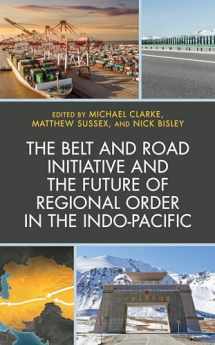
The Belt and Road Initiative and the Future of Regional Order in the Indo-Pacific
Book details
Summary
Description
The Belt and Road Initiative (BRI) is emerging as a vital lynch-pin in China's efforts to establish a maritime and continental zone of influence in the Indo-Pacific region. The Belt and Road Initiative and the Future of Regional Order in the Indo-Pacific interrogates to what extent BRI represents an achievable vision of a China-centric order in Asia and explores its major security implications for the region. The contributions to this volume provide up-to-date analysis of the effect of BRI on the region's foreign policy and alliance patterns, its connection to geo-economics and domestic Chinese politics, and the policy responses of key Indo-Pacific actors. While acknowledging that BRI remains prey to a variety of internal and exogenous shocks, the contributors conclude that at the very least BRI will continue to disrupt the existing alignments of economic and strategic interests in the Indo-Pacific and that on this minimal basis BRI will likely be judged a success by China. For regional actors, however, the BRI simultaneously enhances choice while presenting strategic and economic risks of greater dependency on China - a dilemma intensified by the disruptive effects of the Trump administration on regional confidence in the longevity of American commitments and leadership.


We would LOVE it if you could help us and other readers by reviewing the book
Book review



